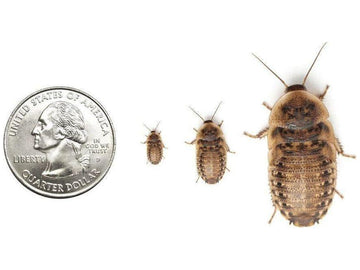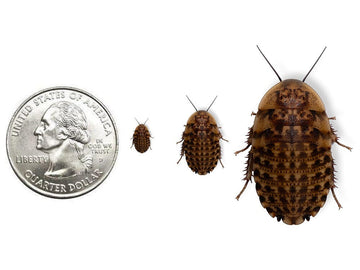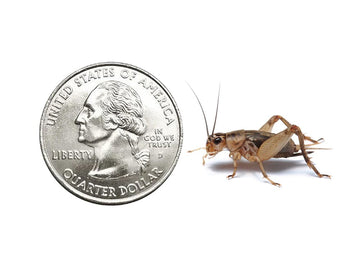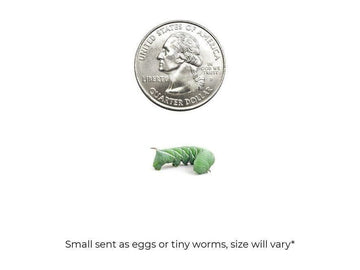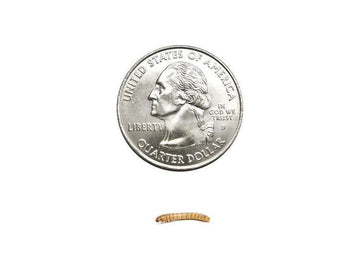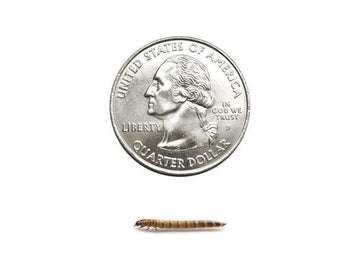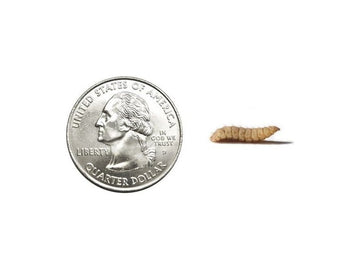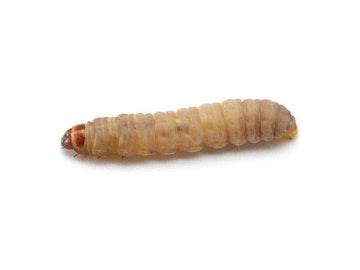As the year goes on and we get into summer, you will notice many different types of reptiles and amphibians begin to come out and take advantage of the sunshine and warmth. Many will just be emerging from hibernation or brumation and some may be looking for a place to safely lay their eggs, trying to re-establish the best places for food and mostly just exploring and making their way in the world around them.
Particularly for the reptile and amphibian enthusiasts among us, this time is especially exciting because we get to view these wonderful animals enjoying their natural habitats. It may be attractive to us to think we could take these critters home with us and look after them, but we have to resist the temptation to do this.
Plenty of reasons exist as to why we shouldn't try and take these wild animals from their natural homes, here are some of them:
Wild animals do best in their natural habitat.
Of course, you would do everything within your means to ensure that your new friend had a healthy and happy life, but even though you could take the animal from the wild, you cannot take the wild from the animal. When an animal has been kept and bred in captivity for a long time, they become better suited to the conditions that differ from those they would be used to in the wild. You also need to take into account the fact that before you would usually take home a pet, you do your research. You may or may not consider yourself an expert in the species of animal you have found, but there are always things you can learn when it pertains to their care in captivity, you may end up giving them a diminished life compared to what they would have had in the wild.
Wild animals are likely to be stressed out around you.
Animals that have grown up wild may not be used to the presence of humans and may even perceive you as a predator, obviously this will lead them to be stressed about your presence. You may be able to meet their care needs, but that doesn't change how you would be a constant source of anxiety and stress. Reptiles and amphibians in particular do not react well to stress; a constant source of anxiety and stress around them will result in serious health problems.
Reptiles and amphibians who have been raised in captivity have become used to humans, even seeing them as a source of food and comfort but in the wild they have not had this exposure and would not perceive you in the same way, no matter how much you want to believe this is not the case.
State Laws That Protect Reptiles
Every state has it's own Department of Natural Resources or DNR that is responsible for enforcing laws regarding the collection and possession of certain species. In particular, species that have become threatened or endangered for any reason. Unless you are familiar with your state's laws and regulations then that reptile you picked up from the ground could be an endangered species and removing it from its natural habitat could be illegal. Taking them home with you could not only be bad for the reptile but you could also land yourself in trouble if found out.
Local Reptile and Amphibian Population
Prior to removing a reptile or amphibian from their habitat, you need to consider the impact that it could have on the local population and impact on the ecosystem. The lizard or frog you picked up could be gravid or pregnant, you could become the owner of a lot of babies that all need a certain habitat in order to survive. Removing the animal from their home also now had a direct impaction on the general population of said animal which isn't just the one that was removed. You would also be preventing your pet from now finding a mate and adding to the local gene pool. We all want the best for our local environment and the best way to do this is to leave it be.
Wild Animals Are More Likely To Carry Disease
If you're interested in taking a reptile or amphibian home then the chances are that you are already an enthusiast and possibly already keep one or more at home. If this is not the case you still need to consider the fact that nature can get nasty at times, the new addition to your household can bring in parasites and disease that could infect your current reptile or amphibian friends or even other pets you may have. A veterinary exam will also be required to ensure that the animal is not sick or carrying anything bad. Just being taken from their natural environment can cause a high amount of stress which can make them susceptible to illness, or lower their immune system to the point they are affected by something that otherwise would have laid dormant in their system. For the sake of the animal it is best to just not take the risk.
What If The Wild Reptile Needs My Help?
In general, reptiles can handle more than we give them credit for. When you see a reptile outside you may assume that it needs assistance, these animals have all grown up and made their way in the world themselves, and the babies are fine away from their parents. It's more likely that you would cause harm to a baby reptile by trying to help it compared to if you just let it figure things out by itself.
Reptiles are capable of crossing the road pretty fast and most of the time they do not need our help. Despite their reputation even turtles can cross the road without getting into too much trouble. However there may be times when you see one and you feel you must help them. If you decide to help, then grip them by the rear part of the shell at the seam that joins the top and bottom portion together, gently pick them up and place them somewhere safer and also not too far away. Never put yourself or other people in danger, only enter the street if it is safe for you and the other drivers.
If you see a snake in the street that needs help; never use your hands to pick them up as the snake is not aware that you are only trying to help and will defend itself which could injure you or the snake. Use a stick instead and gently pick them up and move them somewhere safe.
What To Do If I See A Reptile or Amphibian Outside?
If you see a wild reptile/amphibian outside then watch it! Enjoy them from a distance, take a photograph, even pull up a chair and they may come and pay you a visit (be careful not to get bitten though!). There is nothing wrong with us taking pleasure from watching our wild friends as they go about their day, it is just best to leave them to it for their own sake.


